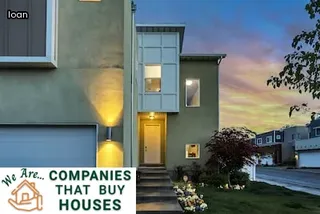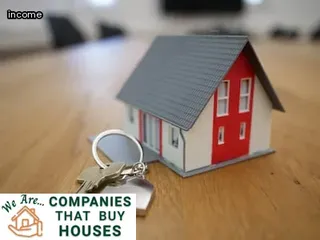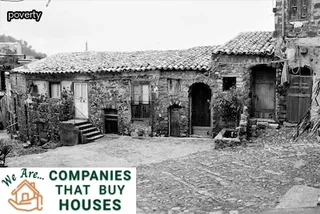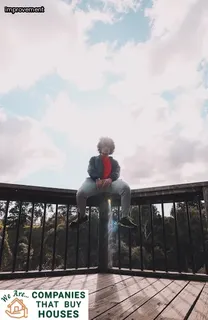Home improvement programs in North Carolina provide numerous DIY solutions and grant opportunities for those looking to repair or upgrade their home. Homeowners can apply for grants through local government agencies, such as the Community Development Block Grant Program (CDBG), which provides funding for essential services, housing rehabilitation, and economic development projects.
Additionally, homeowners may be able to get free resources from the US Department of Agriculture’s Rural Development Office. This office provides loans and grants for rural families looking to make home improvements, including insulation and energy efficiency upgrades.
There are also several nonprofits that offer assistance with home repairs, such as Weatherization Assistance Programs (WAP) and Veterans Home Improvement Programs. The North Carolina Housing Finance Agency (NCHFA) provides low-interest loans to qualified borrowers who need help paying for major repairs or renovations on their homes.
Finally, there are a variety of online tutorials available that can provide step-by-step instructions for completing simple DIY projects around the house. With all these options available, it is easy to find a solution that fits your needs when it comes to home repair in North Carolina.

The Single-Family Rehabilitation Program in North Carolina provides numerous benefits to eligible applicants. Grants can be used for repairing and maintaining homes, including things like replacing roofs, plumbing systems, floors, and painting.
Additionally, the program can pay for lead paint hazard reduction, energy conservation improvements and the installation of fire and smoke detectors. Homeowners must meet certain criteria to qualify for assistance.
These requirements include being a homeowner in North Carolina and being able to show a financial need. Applicants must also have a household income that is below the median income in their county or city of residence.
In addition, applicants must own their home outright or have an existing mortgage that does not exceed 90 percent of their home’s appraised value. The program also has a maximum loan amount which varies depending on the area in which the applicant lives and other factors such as the type of repairs needed.
To apply for this program, homeowners should contact their local housing authority or nonprofit organization that specializes in rehabilitating homes in North Carolina.
Qualifying for urgent repair programs for DIY home repairs in North Carolina can be a daunting task. In order to be eligible, homeowners must meet certain criteria.
To begin with, applicants must own and live in the home they are applying for assistance on. An income verification process will also determine whether applicants qualify based on household size and income level.
Additional qualifications may include proof of residency in the state of North Carolina and proof of any other financial assistance received. Once these requirements are met, applicants can apply to participate in an urgent repair program through the local government or a private agency that offers the service.
The application process typically includes completing a form and providing documents such as deed information, pay stubs, tax returns and utility bills. The application will then be reviewed to determine eligibility and if approved, funding will be provided to complete necessary repairs.

The Displacement Prevention Partnership (DPP) in North Carolina offers a range of services to help homeowners and renters with DIY home repair solutions and grants.
From free, online training courses on topics like roofing maintenance, plumbing repairs, electrical wiring and more to financial assistance programs for eligible homeowners and renters, the DPP can provide the resources necessary to make home repairs both safe and affordable.
The DPP also offers access to reliable contractors that are certified in their particular fields of expertise, as well as technical support from professionals who can answer questions related to home repair.
By taking advantage of these services, homeowners and renters in North Carolina can protect their investments and keep their homes safe, sound and comfortable for years to come.
Navigating the system for diy home repair solutions and grants in North Carolina can be complicated. Knowing where to begin and what resources are available is critical for successful completion of projects.
Breadcrumb navigation allows users to keep track of their progress as they move throughout the system, while language assistance ensures that all information is presented in plain English and easy-to-understand terms. The utility menu provides helpful links to other sites with additional information, such as contact details for grant officers, relevant state regulations, and specific grant application requirements.
Utilizing these features can help simplify the process of finding suitable diy home repair solutions and grants in North Carolina.

The Homeowner Rehabilitation Program in North Carolina offers DIY home repair solutions and grant opportunities to eligible homeowners. To find out if you qualify for the program, contact the Community Development Division of the North Carolina Department of Commerce, which is responsible for administering the program.
You may also contact your local government offices or a local non-profit housing counseling agency, such as the North Carolina Housing Finance Agency, to seek assistance with applying for grants and other financial assistance. If you are struggling to pay your mortgage or need help with making necessary repairs to your property, these organizations can provide guidance and resources.
Additionally, there are numerous websites that offer helpful information about DIY home repair as well as grant programs available in North Carolina.
Recently in North Carolina, Twitter has been abuzz with news of home improvement grants and DIY solutions to repair projects. The North Carolina Department of Health and Human Services offers a grant program designed to provide financial assistance to low-income households that need home repairs, and other organizations are also offering grants that can be used for similar purposes.
Many of these programs are aimed at helping elderly or disabled homeowners who may not have the means to make necessary repairs on their own. For those looking for DIY solutions, many local stores offer supplies and resources needed for completing home repair projects, such as lumber, paint, tools, and more.
With the right resources and guidance from experts in the field, anyone can tackle a home repair project in North Carolina with confidence.

Exploring the network menu for assistance with home repairs in North Carolina can yield a variety of options. DIY home repair solutions such as grants and low-interest loans are available to qualifying applicants, allowing them to make the necessary repairs without breaking the bank.
Grants and loans can be used for a variety of needs, including roof replacements, flooring upgrades, or energy efficient upgrades. By taking advantage of these resources, homeowners can reduce their out-of-pocket costs while still making sure their house is safe and secure.
Additionally, local organizations may also offer additional help in the form of volunteers or supplies. Homeowners interested in exploring these opportunities should reach out to their city or county government offices or contact local non-profits to learn more about what assistance may be available in their area.
The Homeowner Rehabilitation Program in North Carolina provides financial assistance to homeowners who need help with repairs and renovations. This program is designed to assist low-income homeowners in addressing health, safety, and structural issues that would otherwise be too costly to repair on their own.
Eligibility requirements include a maximum household income of up to 80% of the area median income, ownership of the home for at least one year, and the property must not exceed certain values. Benefits of this program include grants that do not have to be repaid as well as low-interest loans for larger projects.
DIY home repair solutions can be used in conjunction with this program for additional savings. The Homeowner Rehabilitation Program in North Carolina is an excellent resource for those who are unable to finance necessary repairs or renovations on their own.

The Limited Repair Program in North Carolina offers assistance to homeowners in need of repairs for their primary residence. Those who are eligible may receive up to $15,000 for a single family home and $7,500 if the property is a mobile home.
The program covers repairs such as roofing, plumbing, septic systems, and electrical systems. Homeowners also have access to grants that can provide additional assistance with repairs.
To qualify for the limited repair program, applicants must meet certain income requirements and be current on their mortgage payments. In addition, they must own and occupy the property as their primary residence for at least one year prior to submitting an application.
Individuals interested in learning more about this program or signing up should contact their local county office for assistance.
When looking for trusted contractors in North Carolina for DIY home repairs, it is important to understand the rules and regulations that must be followed. This includes obtaining building permits and zoning clearance before beginning any repairs.
It is also important to research insurance requirements for major repairs as well as the associated tax implications. Funding sources may be available through state and local agencies, while grants are available from local organizations that cover essential repair costs.
Additionally, loan options can help cover the cost of large-scale projects, while rebates and incentive programs may provide savings when making energy efficient upgrades. Finally, health and safety regulations should be applied when making any repairs.
There is a program in North Carolina that helps seniors with home repairs near Charlotte NC. The Senior Repair Program provides grants to low-income homeowners who are 62 years of age or older, living in Mecklenburg County, for necessary home repairs and modifications.
This program is designed to help seniors remain independent and safe in their homes by providing assistance with minor home repairs, such as roofing, plumbing, heating, electrical work, and other safety related needs. This program can provide up to $7,500 per household for approved projects.
In addition to this program, there are many DIY home repair solutions available that can help seniors with minor repairs around the house. These DIY solutions include videos and tutorials on how to fix common household problems such as leaky faucets or broken door locks.
With these resources seniors can safely manage minor repairs without having to hire a professional.

Are you a senior living in or near Greensboro, NC looking for help with home repairs? Many programs are available that can provide assistance with home repairs and other related projects. The North Carolina Department of Health and Human Services (NCDHHS) has multiple funding sources to help low-income seniors with necessary improvements to their homes.
Through the Home Repair Loan Program, seniors over 62 may qualify for grants up to $7,500 which can be used for necessary home repairs such as roof replacement or plumbing upgrades. Additionally, the NCDHHS offers an Emergency Repair Program which provides funds for emergency repairs to correct health and safety hazards.
Other DIY home repair solutions are also available that can help seniors on a budget complete necessary maintenance around the house without breaking the bank. These include online tutorials, DIY blogs, and local workshops that teach best practices for completing home improvement projects.
The Suffolk County Residential Repair Program, administered by the North Carolina Department of Health and Human Services Division of Aging and Adult Services, is a grant program that provides assistance to eligible homeowners in need of home repairs. The program helps qualifying residents with necessary repairs and modifications to their homes which they would otherwise be unable to afford.
Eligible individuals may receive grants up to $5,000 for home repair projects such as roofing, plumbing, siding and electrical work. In addition, the program also offers accessible solutions for those with disabilities including ramps, handrails and other safety modifications.
Homeowners interested in applying for this grant must meet certain eligibility criteria such as income limits and ownership requirements. Once approved for the program, homeowners are able to utilize DIY home repair solutions or seek professional services from certified contractors in order to complete their projects safely and efficiently.
The Suffolk County Residential Repair Program is an invaluable resource for aging homeowners living on a limited budget who need help making necessary improvements to their homes.
A: Yes, the North Carolina Department of Commerce offers a Home Repair Loan and Grant Program to provide funds to low-income homeowners for necessary home repairs. The program includes both loans and grants.
A: Homeowners in North Carolina can access a variety of DIY home repair solutions and grants, including the NC Home Advantage Mortgage Program, the Home Energy Assistance Program, and the NC Housing Finance Agency’s Repair Loan Program. More information on these programs can be found on the North Carolina Department of Commerce website.